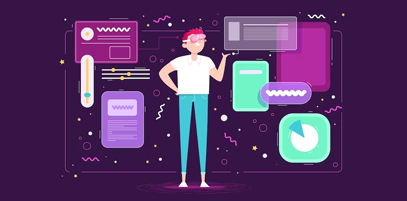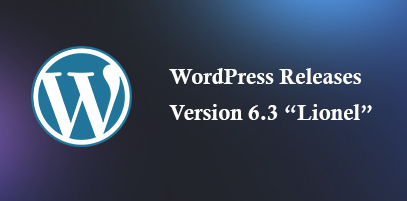Quantum Computing
By :- Ilika - Web Guru Awards Team

A quantum laptop harnesses a number of the almost-mystical phenomena of quantum physics to deliver immense leaps forward in process power. Quantum machines promise to outstrip even the foremost capable of today’s—and tomorrow’s—supercomputers.
They won’t wipe out typical computers, though. employing a classical machine can still be the simplest and most economical answer for grappling with most issues. however, quantum computers promise to power exciting advances in numerous fields, from materials science to prescription drug analysis. Firms square measure already experimenting with them to develop things like lights and a lot of powerful batteries for electrical cars and to assist produce novel medicine.
The secret to a quantum computer’s power lies in its ability to get and manipulate quantum bits, or qubits.
What is a qubit?
Today's computers use bits—a stream of electrical or optical pulses representing 1s or 0s. Everything from your tweets and e-mails to your iTunes songs and YouTube videos is basically long strings of those binary digits.
Quantum computers, on the opposite hand, use qubits, that square measure generally subatomic particles like electrons or photons. Generating and managing qubits may be a scientific and engineering challenge. Some firms, like IBM, Google, and Rigetti Computing, use superconducting circuits cooled to temperatures colder than the part. Others, like IonQ, entice individual atoms in magnetic force fields on a semiconductor unit in ultra-high-vacuum chambers. In each case, the goal is to isolate the qubits during a controlled quantum state.
Qubits have some offbeat quantum properties that mean a connected cluster of them will give far more process power than the constant variety of binary bits. One among those properties is thought of as a superposition and another is termed web.
How do D-Wave Systems work?
D-Wave systems use a method known as quantum tempering to look for solutions to a haul.
In nature, physical systems tend to evolve toward their lowest energy state: objects break hills, hot things settle down, and so on. This behaviour conjointly applies to quantum systems. To imagine this, think about a mortal searching for the most effective answer by finding the bottom natural depression within the energy landscape that represents the matter.
Classical algorithms ask for the bottom natural depression by inserting the travellers at some purpose within the landscape and permitting those travellers’ to manoeuvre supported native variations. whereas it's usually best to manoeuvre downhill and avoid rise hills that square measure too high, such classical algorithms square measure at risk of leading the travellers into close valleys which will not be the worldwide minimum. various trials square measure generally needed, with several travellers starting their journeys from totally different points.
In distinction, quantum tempering begins with the mortal at the same time occupying several coordinates due to the quantum development of superposition. The chance of being at any given coordinate swimmingly evolves as tempering progresses, with the chance increasing round the coordinates of deep valleys. Quantum tunnelling permits the mortal to suffer hills—rather than be forced to climb them—reducing the possibility of changing into unfree in valleys that aren't the worldwide minimum. Quantum web more improves the result by permitting the mortal to find correlations between the coordinates that cause deep valleys.
Understanding Quantum Computing
Superposition and web square measure 2 options of natural philosophy on that these supercomputers square measure primarily based. This empowers quantum computers to handle operations at speeds exponentially beyond typical computers and far lesser energy consumption.
The field of quantum computing started within the Nineteen Eighties. It absolutely was then discovered that bound machine issues may well be tackled a lot of with efficiency with quantum algorithms than with their classical counterparts.
Quantum computing may contribute greatly within the fields of finance, military affairs, intelligence, drug style, and discovery, region coming up with utilities (nuclear fusion), chemical compound style, AI (AI) and massive information search, and digital producing.
Its potential and therefore the projected market size has engaged a number of the foremost distinguished technology firms to figure within the field of quantum computing, as well as IBM, Microsoft, Google, D-Waves Systems, Alibaba, Nokia, Intel, Airbus, HP, Toshiba, Mitsubishi, SK Telecom, NEC, Raytheon, Lockheed Martin, Rigetti, Biogen, Volkswagen, and Amgen.
IT’S ALL concerning QUANTUM SUPERPOSITION
The most normally used example of quantum superposition is Schrödinger’s cat:
Despite its ubiquitousness, several within the QC field aren’t thus crazy Schrodinger’s cat. A lot of fascinating reality concerning superposition — instead of the two-things-at-once purpose of focus — is that the ability to appear at quantum states in multiple ways in which, and raise it totally different queries, aforementioned Donohue. That is, instead of having to perform tasks consecutively, sort of an ancient laptop, quantum computers will run immense numbers of parallel computations.
That’s concerning as simplified as we will get before trotting out equations. However, the top-line takeaway is that that superposition is what lets a quantum laptop “try all methods quickly.”
That’s to not say that such unprecedented machine heft can displace or render moot classical computers. “One issue that we will very agree on within the community is that it won’t solve each style of drawback that we tend to run into,” aforementioned Krauthammer.
But quantum computing is especially compatible with sure varieties of challenges. Those embrace chance issues, improvement (what is, say, the most effective doable travel route?), and therefore the unimaginable challenge of molecular simulation to be used in cases like drug development and materials discovery.
What is entanglement?
Researchers will generate pairs of qubits that square measure “entangled,” which suggests the 2 members of a try exist during a single quantum state. Dynamic the state of 1 of the qubits can instantly amendment the state of the opposite one predictably. This happens although they're separated by terribly long distances. No one extremely is aware of quite however or why trap works. It even baffled Einstein, United Nations agency magnificently delineate it as “spooky action at a distance.” However, it’s key to the ability of quantum computers. During a standard laptop, doubling the number of bits doubles its process power. However, due to the trap, adding further qubits to a quantum machine produces AN exponential increase in its number-crunching ability. That’s nice news. The unhealthy news is that quantum machines square measure far more erring than classical computers due to de-coherence.
What is de-coherence?
The interaction of qubits with their atmosphere in ways in which cause their quantum behaviour to decay and ultimately disappear is termed de-coherence. Their quantum state is extraordinarily fragile. The slightest vibration or amendment in temperature—disturbances square measure called “noise” in quantum-speak—can cause them to tumble out of superposition before their job has been properly done. That’s why researchers do their best to guard qubits against the skin world in those supercooled fridges and vacuum chambers. However, despite their efforts, noise still causes variant errors to creep into calculations. sensible quantum algorithms will atone for a number of these, and adding additional qubits conjointly helps. However, it'll seemingly take thousands of normal qubits to make one, extremely reliable one, called a “logical” qubit. this can sap a great deal of a quantum computer’s procedure capability. That hasn’t bent pioneers’ hopes of being the primary to demonstrate “quantum mastery.”
What is quantum supremacy?
It’s the purpose at that a quantum laptop will complete a mathematical calculation that's incontrovertibly on the far side the reach of even the foremost powerful mainframe.
It’s still unclear precisely what percentage qubits are going to be required to attain this as a result of researchers keep finding new algorithms to spice up the performance of classical machines, and supercomputing hardware keeps recouping. However, researchers and firms square measure operating laborious to say the title, running tests against a number of the world’s most powerful supercomputers.
Real-World Example of a Quantum laptop
Google is paying billions of greenbacks on its conception to build its quantum laptop by 2029. the corporate has opened a field in CA, referred to as Google AI, to assist it to meet its goal. Google has been investing in this technology for years. As well, thus produce other corporations, like Honeywell International (HON) and International Business Machine (IBM). IBM expects to hit major quantum computing milestones within the returning years.
While some corporations have designed personal (although expensive) quantum computers, there's still nothing out there on the business facet. And there’s interest in quantum computing and its technology, with JPMorgan Chase and Visa wanting into the technology. Once developed, Google might launch a quantum computing service via the cloud.
Recent Topics
-
 WordPress.com Launches 100-Year Web Hosting Plan
WordPress.com Launches 100-Year Web Hosting PlanWordPress, the platform that helps people create websites, now offers something rare. It has taken a bold leap into the future with its 100-year web hosting plan. Yo...
Read MoreBy :- Laura Davidson
-
 5 Best AI Web Design Tools You Can Try
5 Best AI Web Design Tools You Can TryWhy bother with all the effort of creating websites manually when we have amazing AI tools? In fact, using these tools has become one of the most-practiced ...
Read MoreBy :- Tiana K
-
 Role of Animation and Micro-Interactions in User Experience
Role of Animation and Micro-Interactions in User ExperienceIn today's world, almost every brand wants to create a user-friendly interface for its customers. The main aim behind this is to increase customer base and revenue. Now, when it comes...
Read MoreBy :- Laura Davidson
-
 Web Design Trends to Watch Out for in 2024
Web Design Trends to Watch Out for in 2024Web design is a constant-evolving technology landscape. As a web designer, staying tuned with web design trends and keeping your designs up-to-date is important. These trends will affect ...
Read MoreBy :- Esther McGuinness
-
 The Power of Storytelling in Web Design Engaging Users with a Narrative
The Power of Storytelling in Web Design Engaging Users with a NarrativeStories never fail to engage listeners. That’s why web designers are leveraging the art of storytelling in their designs. In web designing, storytelling goes beyond merely usin...
Read MoreBy :- Navkiran Dhaliwal
-
 WordPress Releases Version 6.3 ?“Lionel”
WordPress Releases Version 6.3 ?“Lionel”WordPress 6.3 “Lionel” is out! Now, you’ll be able to create more beautiful and compelling websi...
Read MoreBy :- Tiana K
